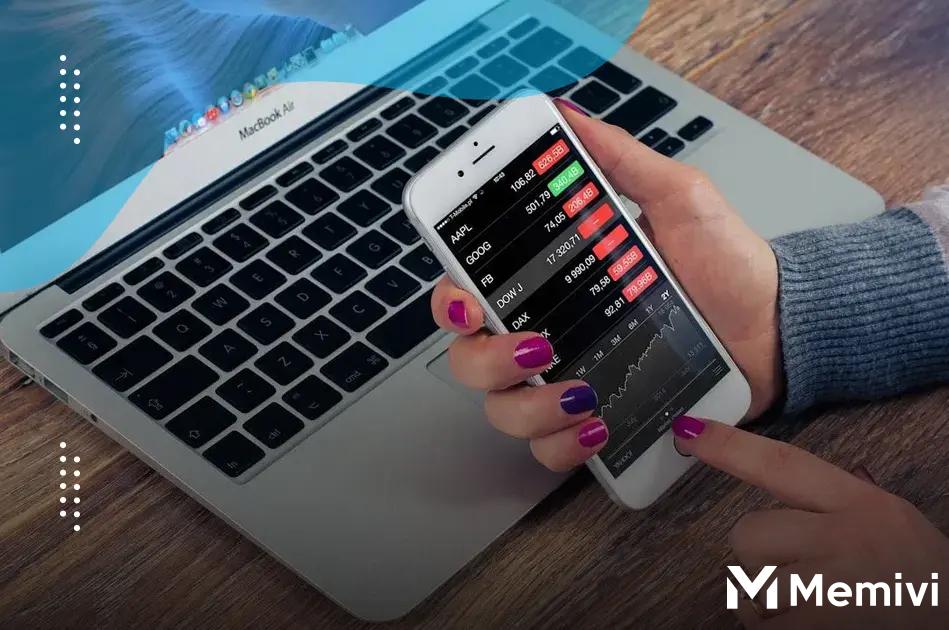
Whether you’re opening your first bank account or trying to manage your finances online, understanding the basics is crucial. In this guide, we will unravel the complexities of the U.S. banking system to help you maximize benefits while avoiding common pitfalls.
Understanding U.S. Banking Basics
When entering the U.S. financial system, understanding the basics of banking is crucial for any newcomer. Banks in the United States offer a variety of services like checking accounts, savings accounts, loan services, and investment opportunities. Recognizing the differences between these services can assist in making informed financial decisions.
Checking Accounts are designed for regular transactions, including deposits and withdrawals. They often come with a debit card, making it easier to access your funds quickly. Savings accounts, on the other hand, are used to set aside money and might earn interest over time. Knowing the difference can help in managing money efficiently and avoiding unnecessary fees.
Banks vs. Credit Unions is another vital aspect. While banks are profit-driven entities, credit unions are not-for-profit and often offer lower fees and better interest rates. Each has its advantages, so understanding your personal or financial preference is key when choosing where to bank.
The Federal Deposit Insurance Corporation (FDIC) is a U.S. government agency that provides insurance on deposits. This ensures that your money is safe up to a certain amount if the bank fails. Newcomers should always check if the bank is FDIC insured to guarantee the safety of their funds.
Online Banking is widely available and offers convenience through 24/7 account access, mobile check deposits, and funds transfer. Digital options can simplify banking, but always ensure secure networks to protect personal information.
Understanding these basics will not only assist you in making sound financial decisions but will also lay a strong foundation for future financial goals in the United States.
Opening Your First Bank Account

Opening your first bank account can be an exciting step towards financial independence. It’s essential to choose the right type of account that suits your needs, whether it’s a checking, savings, or joint account. Research different banks to compare fees, interest rates, and other features before making a decision.
To open an account, you’ll need a few basic documents. Typically, banks require a valid ID, such as a passport or driver’s license, and your Social Security number. Proof of address may also be necessary, so have a utility bill or lease agreement handy. Many banks also let you open accounts online, which can be more convenient.
Consider the initial deposit requirements. Some banks may require a minimum deposit, which can vary widely. Be sure to ask about this and plan accordingly. It’s also wise to inquire about typical fees, such as maintenance fees, ATM fees, and overdraft fees, to avoid unexpected charges.
When choosing a bank, look for one that offers online and mobile banking services. These features allow you to manage your account, check balances, and transfer money anytime, anywhere. They often come with advanced security measures, like two-factor authentication, so you can bank with confidence.
Remember, your first bank account is more than just a place to store money. It’s a financial tool that can help you build credit, save money, and plan for future purchases. By understanding your options and making informed decisions, you can take full advantage of what banking offers.
Navigating Online and Mobile Banking
When it comes to navigating online and mobile banking, understanding the features provided by your bank is essential. Begin by familiarizing yourself with the bank’s online portal and mobile app. Most banks offer secure login methods, such as multi-factor authentication, which is crucial to protect your account.
Check account balances and review recent transactions regularly through the online platform. This helps in tracking expenses and ensuring there are no unauthorized transactions. Many banks offer options to set alerts for transactions over a certain amount or when your balance is low, ensuring you are aware of your financial status at all times.
Newcomers will find it beneficial to learn how to transfer funds between their own accounts or to other people. Understanding the bank’s policy on transfers and fees will help you plan your finances better. Moreover, banks provide facilities for setting up automatic bill payments, saving you time and ensuring all bills are paid on time, preventing late fees.
Mobile banking apps enhance convenience with functionalities like mobile check deposits. This feature allows you to deposit checks simply by taking a picture with your smartphone, saving a trip to the bank.
Lastly, many banks offer budgeting tools within their online systems. Utilize these resources to create budgets, track your spending habits, and gain better financial control. By fully utilizing these tools, managing your finances becomes less complex and more efficient.
Maximizing Benefits and Avoiding Fees

To make the most of your banking experience in the U.S. while steering clear of unnecessary fees, it’s important to be proactive and informed. Start by reviewing the terms and conditions associated with your account to fully understand any fees that may apply, such as monthly maintenance fees, ATM fees, and overdraft charges.
Consider signing up for direct deposit to potentially waive monthly fees. Additionally, many banks offer fee-free transactions if you meet certain criteria, such as maintaining a minimum balance or completing a specific number of transactions per month. It’s beneficial to regularly check your bank’s fee schedule, as fees can change.
Take advantage of online and mobile banking tools to monitor your account balance and track spending, which can help avoid overdraft fees. Many banks provide alerts that can notify you when your balance is low or a large transaction occurs. Customizing these alerts can keep you informed and prevent unexpected charges.
Exploring credit card offers, rewards programs, and other bank-related services can also yield benefits. Some institutions offer rewards for debit card usage or cashback offers for specific purchases, allowing you to maximize your banking benefits.


 How to Build Credit in the U.S. from Scratch (Even If You Just Moved Here) <p class='sec-title' style='line-height: normal; font-weight: normal;font-size: 16px !important; text-align: left;margin-top: 8px;margin-bottom: 0px !important;'> Learn how to build credit in the U.S. from scratch with practical steps to establish and maintain a strong financial foundation. </p>
How to Build Credit in the U.S. from Scratch (Even If You Just Moved Here) <p class='sec-title' style='line-height: normal; font-weight: normal;font-size: 16px !important; text-align: left;margin-top: 8px;margin-bottom: 0px !important;'> Learn how to build credit in the U.S. from scratch with practical steps to establish and maintain a strong financial foundation. </p>  Why So Many People Are Broke Even With a Good Salary — and How to Fix It <p class='sec-title' style='line-height: normal; font-weight: normal;font-size: 16px !important; text-align: left;margin-top: 8px;margin-bottom: 0px !important;'> Discover why so many Americans are broke despite high salaries and learn proven steps to build real financial stability and long-term wealth. </p>
Why So Many People Are Broke Even With a Good Salary — and How to Fix It <p class='sec-title' style='line-height: normal; font-weight: normal;font-size: 16px !important; text-align: left;margin-top: 8px;margin-bottom: 0px !important;'> Discover why so many Americans are broke despite high salaries and learn proven steps to build real financial stability and long-term wealth. </p>  How Americans Are Saving Hundreds a Month on Groceries Without Extreme Couponing <p class='sec-title' style='line-height: normal; font-weight: normal;font-size: 16px !important; text-align: left;margin-top: 8px;margin-bottom: 0px !important;'> Discover how Americans are saving hundreds on groceries each month through smart planning, technology, and mindful habits. </p>
How Americans Are Saving Hundreds a Month on Groceries Without Extreme Couponing <p class='sec-title' style='line-height: normal; font-weight: normal;font-size: 16px !important; text-align: left;margin-top: 8px;margin-bottom: 0px !important;'> Discover how Americans are saving hundreds on groceries each month through smart planning, technology, and mindful habits. </p>